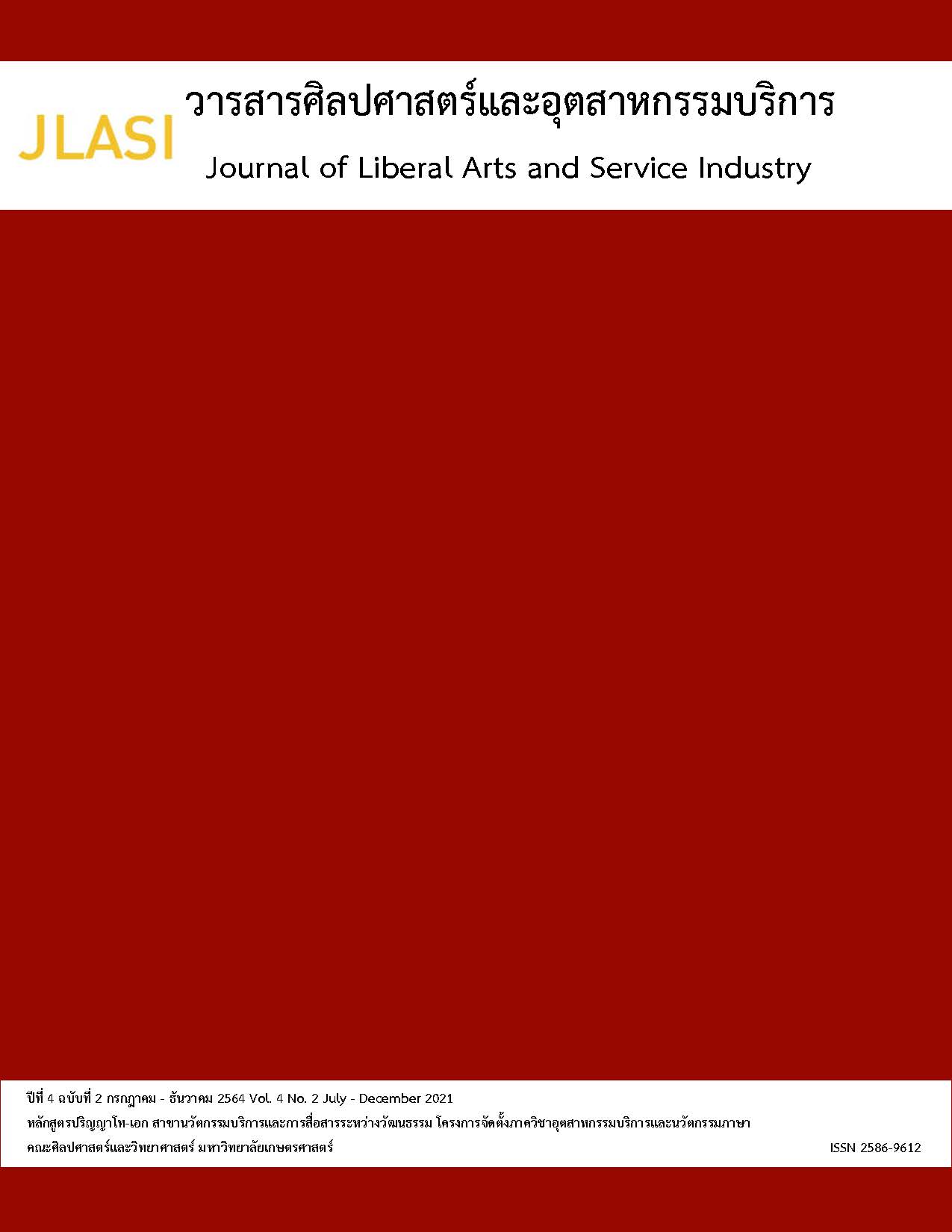การประเมินหลักสูตรครุศาสตรมหาบัณฑิต สาขาวิชาการบริหารการศึกษา หลักสูตรปรับปรุง พ.ศ. 2559 คณะครุศาสตร์ มหาวิทยาลัยราชภัฏกาญจนบุรี
คำสำคัญ:
การประเมินหลักสูตรบทคัดย่อ
การศึกษาวิจัยครั้งนี้ มีวัตถุประสงค์เพื่อประเมินหลักสูตรและเพื่อศึกษาข้อเสนอแนะการปรับปรุงหลักสูตรครุศาสตรมหาบัณฑิต สาขาวิชาการบริหารการศึกษา หลักสูตรปรับปรุง พ.ศ. 2559 คณะครุศาสตร์ มหาวิทยาลัยราชภัฏกาญจนบุรี การประเมินหลักสูตร ใช้รูปแบบการประเมินแบบ CIPP ของสตัฟเฟิลบีม เพื่อประเมินปัจจัยที่เกี่ยวข้องกับหลักสูตรใน 4 ด้าน คือ ด้านบริบท ด้านปัจจัยนำเข้า ด้านกระบวนการ และด้านผลผลิต กลุ่มตัวอย่างในการศึกษาวิจัยครั้งนี้ คือ อาจารย์ นักศึกษา ศิษย์เก่า ผู้ใช้บัณฑิต ใช้การสุ่มกลุ่มตัวอย่างแบบแบ่งชั้นอย่างเป็นสัดส่วนตามกลุ่มประชากร โดยการเปิดตารางของเครจซี่และมอร์แกน ที่ระดับความเชื่อมั่นร้อยละ 95 ได้กลุ่มตัวอย่าง จำนวน 122 คน เครื่องมือที่ใช้ในการวิจัย คือ แบบประเมินหลักสูตร
ผลการวิจัยพบว่า 1) ผลการประเมินหลักสูตรครุศาสตรมหาบัณฑิต สาขาวิชาการบริหารการศึกษา หลักสูตรปรับปรุง พ.ศ. 2559 คณะครุศาสตร์ มหาวิทยาลัยราชภัฏกาญจนบุรี โดยภาพรวมและรายด้าน มีความเหมาะสมอยู่ในระดับมากที่สุด เรียงตามค่าเฉลี่ยจากมากไปน้อย คือ ด้านปัจจัยนำเข้า ด้านกระบวนการ ด้านบริบท และด้านผลผลิต 2) ข้อเสนอแนะเพิ่มเติมสำหรับการประเมินหลักสูตรครุศาสตรมหาบัณฑิต สาขาวิชาการบริหารการศึกษา หลักสูตรปรับปรุง พ.ศ. 2559 มีข้อเสนอแนะเพิ่มเติมดังนี้ ด้านบริบท ควรมีความสองคล้องกับสถานการณ์ปัจจุบัน ซึ่งนักศึกษาที่ได้เรียนต้องได้รับความรู้จากบทเรียนและอาจารย์ที่ให้ความรู้ตรงตามหลักสูตร สอดคล้องกับสภาพการบริหารการศึกษาในปัจจุบัน บริบทของหลักสูตรควรออกแบบมาเพื่อให้นักศึกษาเป็นผู้บริหารการศึกษาที่มีความสามารถในการบริหารการศึกษาได้อย่างมีประสิทธิภาพ ด้านปัจจัยนำเข้า ผู้ใช้บัณฑิตต้องการให้หลักสูตรมีเนื้อหาเกี่ยวกับการพัฒนาบุคลิกภาพ การวางตัวในสังคมให้มีความเข้มข้นมากยิ่งขึ้น และด้านกระบวนการ ควรมีกระบวนการจัดการเรียนรู้ที่หลากหลาย มีการจัดระบบการเรียนการสอนอย่างเป็นระบบ กระบวนการเป็นไปตามหลักการของหลักสูตรที่กำหนดดีแล้ว แต่ควรกำหนดหลักเกณฑ์วิธีการให้นักศึกษาเกิดความสะดวกต่อการศึกษาค้นคว้าอิสระให้มากขึ้น กระบวนการสำเร็จการศึกษาควรกำหนดให้ชัดเจน






